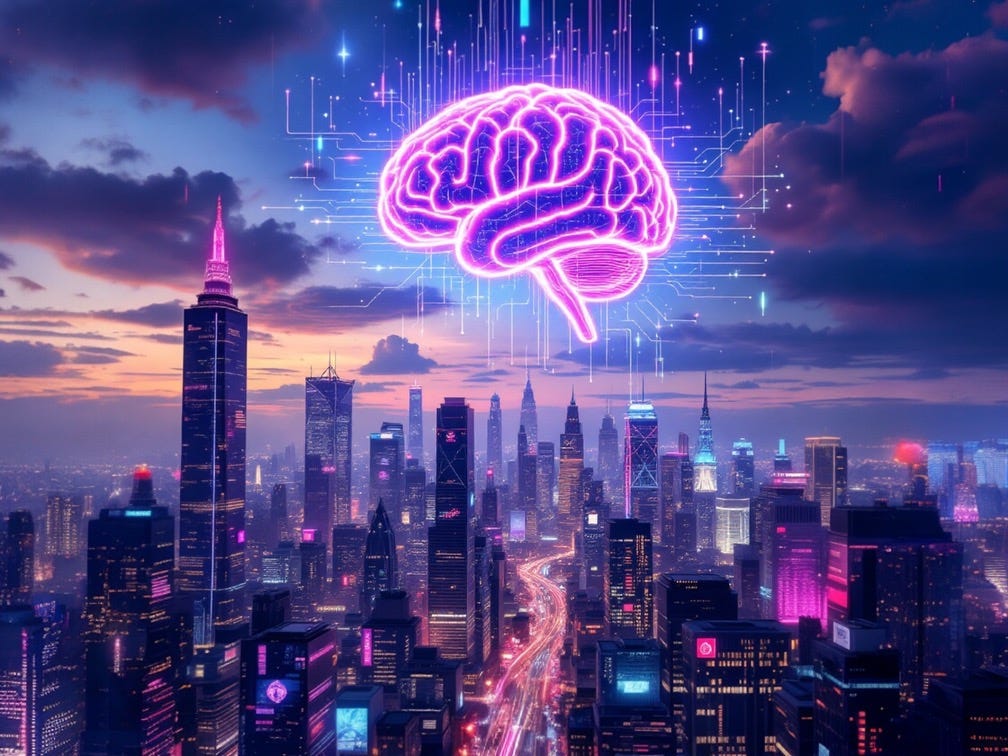In their recently released groundbreaking book, “Superagency: What Could Possibly Go Right with Our AI Future, Reid Hoffman and Greg Beato present a compelling vision of artificial intelligence (AI) as a transformative force for societal good.
The duo argue that, when harnessed thoughtfully, AI has the potential to enhance human agency, foster inclusivity, and drive positive change across various sectors.
This perspective aligns seamlessly with our mission here at the Dave Alexander Center for Social Capital, which emphasizes people-centric business strategies and the cultivation of social capital to improve society.
AI as an Amplifier of Human Potential
Reid and Greg challenge the prevalent dystopian narratives surrounding AI by illustrating how it can serve as an amplifier of human potential. They envision AI tutors that personalize education for each child, researchers rapidly discovering cures for diseases like Alzheimer’s and cancer, and AI advisors empowering individuals to navigate complex systems and achieve their goals.
This forward looking outlook is encapsulated in the book’s description:
“Superagency offers a roadmap for using AI inclusively and adaptively to improve our lives and create positive change.”
This vision resonates with the Center for Social Capital’s belief in the transformative power of social capital—the networks and relationships that enable individuals and communities to thrive. By leveraging AI to enhance these connections, we can create more equitable and resilient societies.
Empowering Individuals Through AI
A central theme in Superagency is the empowerment of individuals through AI. Reid and Greg argue that AI can democratize access to information and resources, enabling people to make informed decisions and pursue opportunities previously out of reach.
This empowerment aligns with the Center’s mission to honor business leaders who prioritize people, recognizing that strong bonds with employees, customers, and communities are essential for success. As stated on the Center’s website:
“It is our privilege and purpose to honor CEOs and business leaders who indeed see people as the point of business and of profits.”
By integrating AI into people-centric business models, leaders can enhance their social capital, fostering trust and collaboration that drive both economic and social progress.
Addressing Challenges with a Human-Centered Approach
While acknowledging potential challenges such as disinformation and job displacement, Reid and Greg advocate for a proactive, human-centered approach to AI development. They emphasize the importance of inclusive design and adaptive strategies that prioritize human well-being.
This approach mirrors the Center for Social Capital’s commitment to recognizing leaders who view their role as not just providing products and services but also improving the state of humanity.
The Center emphasizes:
“Leaders realize their role and responsibility is to not just provide products and services but to help improve the state of humanity—that is their real product.”
By fostering a collaborative dialogue between technologists, business leaders, and communities, we can navigate the complexities of AI integration in a manner that upholds human dignity and promotes social good.
Image produced using PhotoRoom
AI and the Future of Social Capital
The integration of AI into various aspects of society presents a unique opportunity to redefine and enhance social capital. By facilitating better communication, understanding, and collaboration, AI can strengthen the networks that constitute social capital.
This potential is particularly significant in the context of our Center’s mission to inspire business leaders to adopt people-centric strategies. As Reid and Greg suggest, AI can be a tool that, when used responsibly, amplifies our capacity to connect, empathize, and work together towards common goals.
A Call to Embrace AI with Purpose
Superagency serves as a call to action to embrace AI not with trepidation but with purposeful enthusiasm. Hoffman and Beato encourage us to actively shape a future where human ingenuity and AI converge to create extraordinary outcomes. By aligning AI development with the principles of social capital, we can ensure that technological advancements contribute to a more connected, equitable, and prosperous society.
In Superagency, authors Reid Hoffman and Greg Beato offer a visionary yet pragmatic perspective on the future of AI, one that resonates with the mission of the Dave Alexander Center for Social Capital. By viewing AI as a tool to enhance human agency and social connectivity, we can harness its potential to foster inclusive growth and societal well-being.
This approach not only challenges conventional fears but also invites us to participate actively in shaping a future where technology and humanity advance hand in hand.






